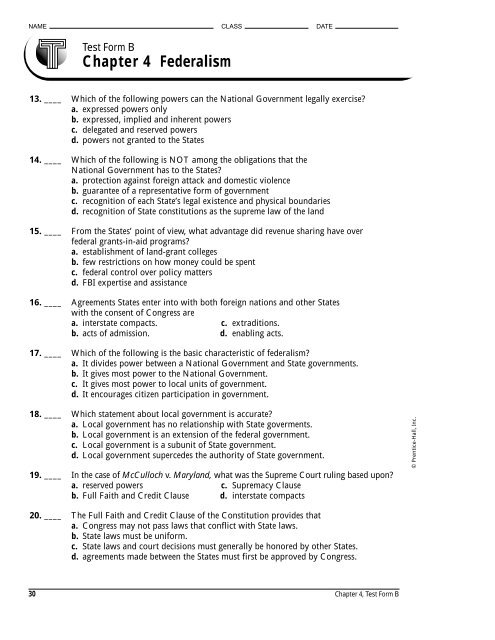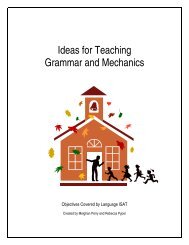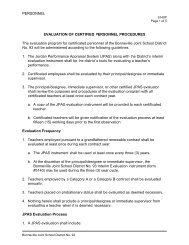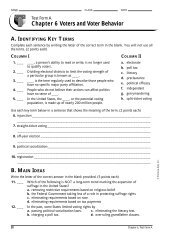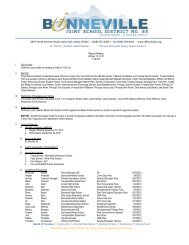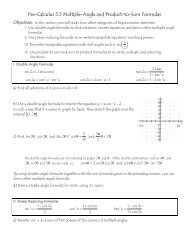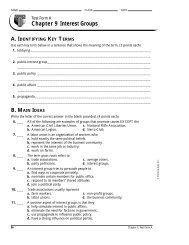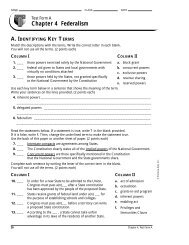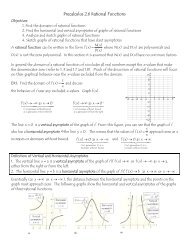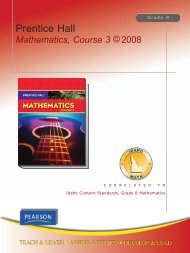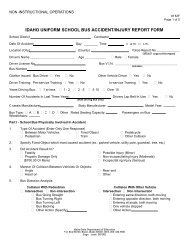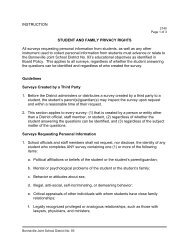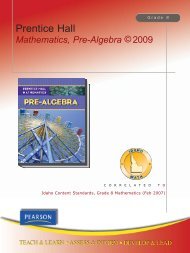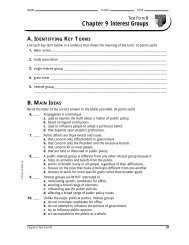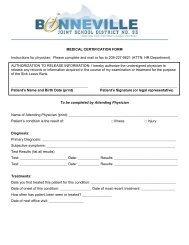Chapter 4: Test Form B
Chapter 4: Test Form B
Chapter 4: Test Form B
You also want an ePaper? Increase the reach of your titles
YUMPU automatically turns print PDFs into web optimized ePapers that Google loves.
NAME CLASS DATE<strong>Test</strong> <strong>Form</strong> B<strong>Chapter</strong> 4 Federalism13. ____ Which of the following powers can the National Government legally exercise?a. expressed powers onlyb. expressed, implied and inherent powersc. delegated and reserved powersd. powers not granted to the States14. ____ Which of the following is NOT among the obligations that theNational Government has to the States?a. protection against foreign attack and domestic violenceb. guarantee of a representative form of governmentc. recognition of each State’s legal existence and physical boundariesd. recognition of State constitutions as the supreme law of the land15. ____ From the States’ point of view, what advantage did revenue sharing have overfederal grants-in-aid programs?a. establishment of land-grant collegesb. few restrictions on how money could be spentc. federal control over policy mattersd. FBI expertise and assistance16. ____ Agreements States enter into with both foreign nations and other Stateswith the consent of Congress area. interstate compacts. c. extraditions.b. acts of admission. d. enabling acts.17. ____ Which of the following is the basic characteristic of federalism?a. It divides power between a National Government and State governments.b. It gives most power to the National Government.c. It gives most power to local units of government.d. It encourages citizen participation in government.18. ____ Which statement about local government is accurate?a. Local government has no relationship with State goverments.b. Local government is an extension of the federal government.c. Local government is a subunit of State government.d. Local government supercedes the authority of State government.19. ____ In the case of McCulloch v. Maryland, what was the Supreme Court ruling based upon?a. reserved powers c. Supremacy Clauseb. Full Faith and Credit Clause d. interstate compacts© Prentice-Hall, Inc.20. ____ The Full Faith and Credit Clause of the Constitution provides thata. Congress may not pass laws that conflict with State laws.b. State laws must be uniform.c. State laws and court decisions must generally be honored by other States.d. agreements made between the States must first be approved by Congress.30 <strong>Chapter</strong> 4, <strong>Test</strong> <strong>Form</strong> B


